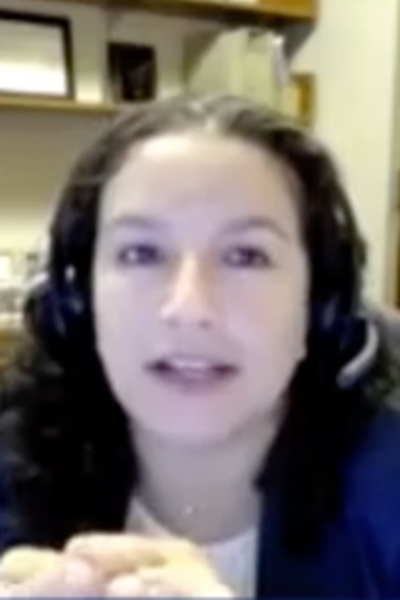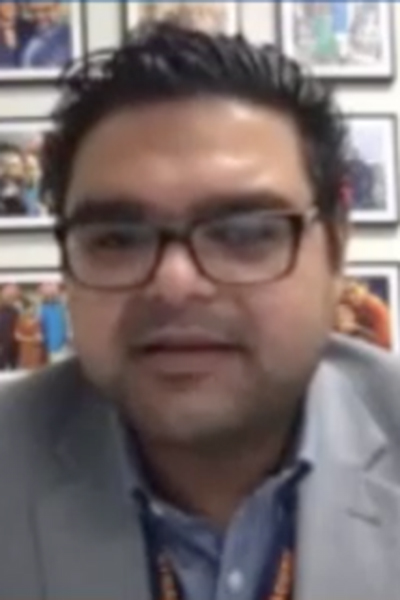
In an internet minute in 2019, 1 million people were logged into Facebook, 18.1 million texts were sent, 4.5 million videos were viewed, and 87,500 people were tweeting.
“It’s really undeniable how influential social media use has become in health care use as well,” said Dina Khateeb, DO.
Dr. Khateeb, Muhammad Sameed, MD; Alice Gallo de Moraes, MD; and Viren Kaul, MD, addressed the ethical and legal perils of social media use in medicine during a CHEST 2020 session. They offered tips for using social media across platforms—including Facebook, Instagram, and Twitter—and things that should be avoided.
“This is a very important topic in the current time of the pandemic where the use of social media for academic sharing has dramatically increased, going from cases to treatment strategies to even coping mechanisms for burnout and psychological stress,” Dr. Sameed said.

The major uses of social media in health are public health and emergency announcements, feedback on services and advertisements, and education and knowledge sharing, which is the most prominent, he said.
There are some high-risk areas of legal exposure when sharing content, Dr. Sameed continued, for example, your activity on social media can conflict with state or federal laws, it can deal with some patient privacy issues, and your unprofessional behavior depicted online can be used against you.
Dr. Sameed shared some common misunderstandings about using social media:
- Postings are private.
- Accessible only by the intended recipient.
- Deleted content is no longer available.
- Okay to talk about patients by nickname, room number, or diagnoses. Have to be careful.
And addressed what unprofessional behavior looks like online:
- Photos or comments about alcohol or drug use
- Profane, sexually explicit, or racially derogatory comment
- Negative comments about coworkers and employers
- Threatening or harassing comments
“Use your social media in a very, very safe and protected manner, and make sure that you know the organization’s policies,” he said. “Maintain patient privacy and confidentiality at all times. Double and triple check before posting patient information. And better: Get their authorization.”
There are several common laws that govern social media, including HIPAA, National Labor Relation Act & The Fair Credit Reporting Act, Stop Online Piracy Act (SOPA), Protect Intellectual Property Act (PIPA), and Stored Communication Act or Wiretap Act, but it doesn’t always account for the nuances of social media.
Using social media comes with ethical obligations, and if used unethically, can result in consequences both legally and professionally, Dr. Khateeb said. One dilemma Dr. Khateeb addressed was a compromised patient-provider relationship, for example, googling for information about your patient.
“It really should be avoided,” she said. “What can happen is that it blurs that line or boundary between a professional and personal relationship with the individual. That professional boundary is important for maintaining the health-care professionals’ integrity, accountability, and trustworthiness.”
Another dilemma is false medical information online, which is especially rampant in the COVID-19 era as content is rapidly disseminated and unregulated, which can lead to individual and social harm.

“We as health-care professionals have not just the professional obligation, but an ethical obligation to make sure that the content that’s being posted is correct and not false. We need to be very careful about the information we choose to promote and make sure that’s not false information.”
Alice Gallo de Moraes, MD, also described potential pitfalls of using social media and identified solutions to avoid those pitfalls. She suggested checking what your institution’s policy is on social media use, and making it clear the relationship of your tweets by putting it on your profile. For example, stating “tweets are my own.”
Don’t brag. Instead, shine the spotlight on others. Don’t post identifiable patient vignettes, cases, or pictures. When it comes to trolls, don’t just feed them, she said. Make sure to engage wisely and take a deep breath or walk before responding.
“Don’t just post,” she said. “Pay attention to your brand. Tend to it. Make sure it reflects who you are. If it’s intended to be professional, make sure your titles are there.”
Connect with like-minded colleagues and with those outside of your “bubble” and make sure your privacy settings are the ones you want.

Viren Kaul, MD, tied it all together with some final tips.
- Be original.
- Be spontaneous. “People really want to hear what you have to say,” he said.
- Maintain your profile. Make sure it’s easily identifiable with you and it’s consistent across platforms. Curate your presence.
- Remember there’s no take backs and no do-overs.





